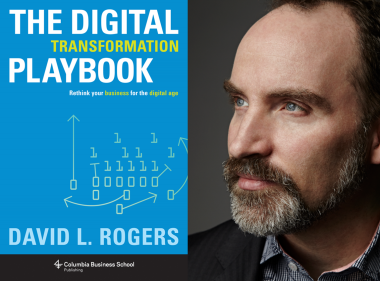Digital Transformation - A Recent Review

In the fast-changing digital landscape of today, businesses must undergo digital transformation in order to remain competitive and relevant. It has become a necessity rather than a luxury, as organizations that fail to adapt run the risk of being left behind. Digital transformation refers to the integration of digital technologies into an organization, with the aim of enhancing productivity, efficiency, and sustainability. The term gained significant attention during the COVID-19 pandemic and represents a broader cultural shift towards agile and intelligent business practices. Core transformative technologies such as artificial intelligence (AI), big data, and the cloud are widely applied across various industries, while sectors like manufacturing are embracing specialized robotics. Many companies have already embarked on their digital transformation journey, with nearly three-quarters of global organizations citing it as their top IT priority in 2022, a significant increase from around half in 2021.
The Focus on Cloud Technologies
Global spending on digital transformation surpassed $1.59 trillion in 2021, experiencing a growth of over 20 percent compared to the previous year. The pandemic played a crucial role in driving digital transformation efforts, as businesses embraced cloud technologies due to the rise of remote work. Adapting existing IT solutions through cloud extensions emerged as the most common approach to digital transformation worldwide in 2022. The global public cloud market is estimated to have exceeded $490 billion. As of 2022, nearly 90 percent of organizations worldwide had implemented cloud technologies, marking the highest adoption rate among all emerging technologies.
Artificial Intelligence (AI) Adoption
Artificial intelligence represents the forefront of digital transformation initiatives, but the adoption rates of AI technologies vary significantly across business sectors. The technology and telecommunications sector leads the way with high adoption rates in product and service development, while the financial services sector has embraced AI for service operations. When effectively implemented, AI and machine learning enable intelligent decision-making for executives through predictive modeling and enhance customer service through personalization and automated chatbots. However, the complexities associated with AI implementation present challenges for smaller organizations with limited budgets, setting a high bar for entry.
Workforce Transformation
The widespread adoption of new digital processes has prompted organizations to reassess the role of their workforce, as certain technologies require specialized skills and competencies. While new hires are often integral to business transformation, an increasing number of organizations prioritize upskilling or reskilling existing employees through learning and development programs. For instance, a quarter of organizations worldwide planned to implement data analysis or analytics programs in 2022, up from 18 percent in 2021. Additionally, 30 percent planned to run digital fluency or transformation programs. Digital upskilling is seen as crucial for employees to succeed in the job market, with a particular emphasis on learning digital skills in emerging economies such as India and China.
Statistics source: Statista


